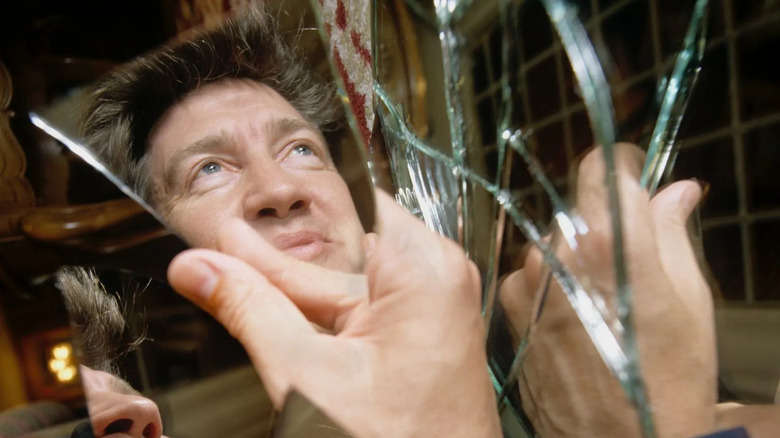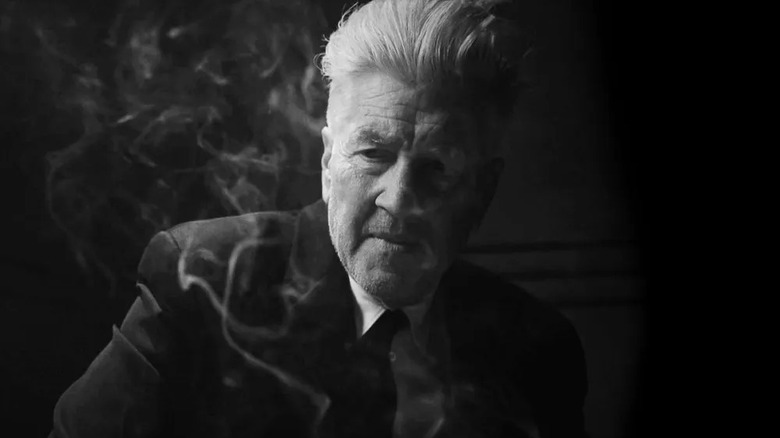Lynch/Oz Review: Tracing The Populist Surrealism Of David Lynch And Movie Americana [Fantastic Fest]
During a New York Film Festival Q&A for "Mulholland Drive," David Lynch was asked about the influence of "The Wizard of Oz" on his film. Lynch, who can often be hilariously evasive when it comes to questions, actually got earnest and replied: "There is not a day that goes by that I don't think about the 'Wizard of Oz.'" Director Karyn Kusama was in the audience for that Q&A, and recounts the story in "Lynch/Oz," Alexandre O. Philippe's attempt to connect Lynch's surreal worlds to the classic "The Wizard of Oz." It's not an outlandish premise, since "Oz" clearly has influenced Lynch for years — there are full-blown references to it littered through his films, most notably "Wild at Heart." As Lynch himself says in his MasterClass, "The Wizard of Oz" is a "film that has caused people to dream for decades."
Like Philippe's "78/52: Hitchcock's Shower Scene" and "Memory: The Origins of Alien," "Lynch/Oz" is an obsessive documentary that goes heavy into film influences and connections. And like many of Philippe's docs, it can feel a little bit like supplementary material — or a podcast with visual aids. Here, the filmmaker assembles a team of off-screen narrators — critic Amy Nicholson, and filmmakers Rodney Asher, John Waters, David Lowery, Justin Benson & Aaron Moorhead, and Karyn Kusama — to talk about the various connections. It's also a movie trip through Americana, specifically how Lynch draws on the world of the idealized 1950s and flips it into a nightmare.
It's fun, fascinating stuff. But it also starts to get a little dry, especially when there are entire sections that feel like they don't touch on Lynch and his work at all.
Over the rainbow
Filmmakers are often heavily influenced by the first movie burned into their brains, and it's clear "The Wizard of Oz" is that film for many people from Lynch's generation. "Oz," believe it or not, was not a huge hit when it first hit theaters. But like "It's a Wonderful Life," the film found new life on TV. Networks would re-run the movie every year around Christmas, and it worked its way into the minds of the young and old. How could it not? It's a fantastical, colorful adventure with the most relatable message of all time: there's no place like home. It doesn't have to be your real home; the place you grew up. It could just be a place you feel safe and secure. The place you long to return to after a long, troubling day. The place where everything is alright, however fleetingly.
Lynch's films can often feel like they're chasing "Oz" and that message. Buried underneath the darkness and derangement of his work is a beating heart; a goodness struggling to be seen in the midst of the chaos. As "Lynch/Oz" progresses, it takes us on a journey that dissects and recontextualizes Lynch's work. That can often be hard since Lynch's output is so deliberately enigmatic. But "Lynch/Oz" doesn't stop at Lynch, or "Oz." It's a rambling, sprawling journey through all sorts of films that can neatly — and not-so-neatly — be seen as reflections and influences. "The Miracle Worker," "Back to the Future," the works of Stanley Kubrick, and more are featured here. Hell, even "Joker" gets a quick shout-out.
The segments vary in quality, with Kusama and Benson & Moorehead's the most interesting. Waters is probably the most entertaining commenter, although he primarily talks about his own work (which is still fun to hear about). As a fan of Lynch's work and film in general, I found all of this enjoyable — but not incredibly revealing. Clocking in at nearly a full two hours, "Lynch/Oz" overstays its welcome. But it also will have film fans salivating to revisit (or in some cases, discover) what's being presented here. Best of all, the doc underscores how unique, brilliant, and immense Lynch's work is. Now if you'll excuse me, I have to go rewatch all of his movies.
/Film Rating: 6 out of 10

